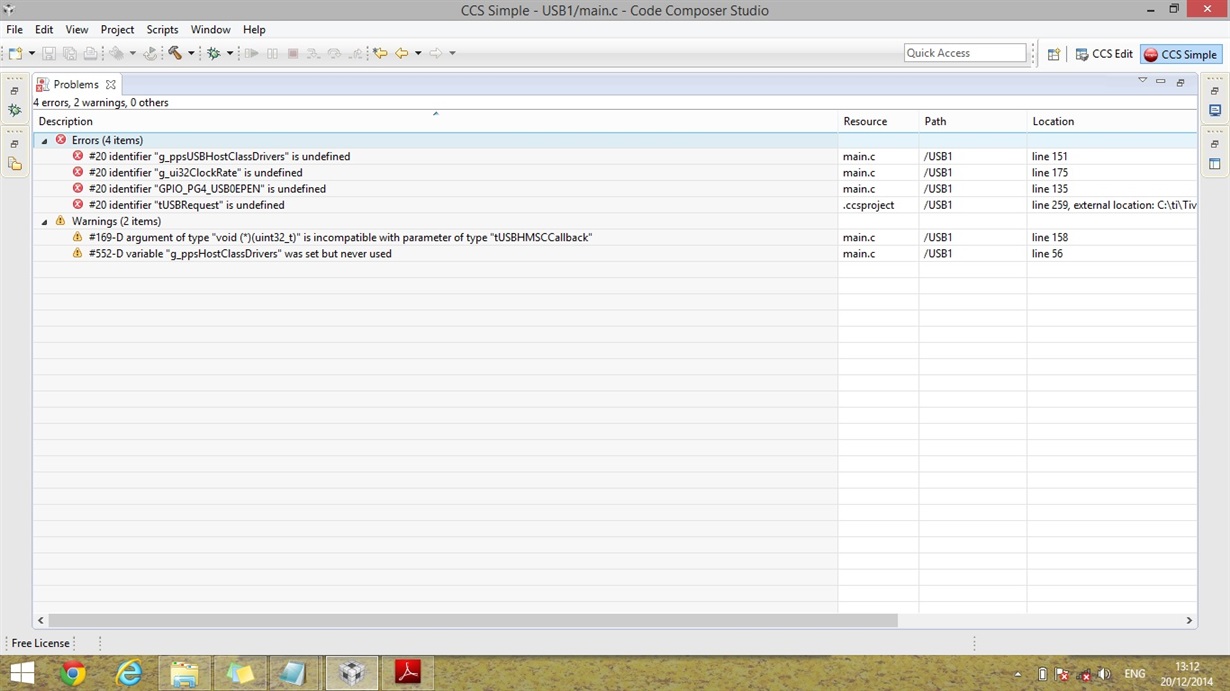I'm currently developing a USB Host CDC for the TM4C123 and am hoping to find some examples or get some suggestions on how best to approach this.
The USB Device I need to host is using the Microchip USB Stack and becomes a virtual serial port under Windows as the USB Endpoint is an ACM (Abstract Control Model) USB subclass.
I have seen the example developed by Leo Hendrawan - http://processors.wiki.ti.com/index.php/Stellaris_-_USB_Host_FTDI
But this is for a device with an FTDI chip, I am assuming this code can be worked on, but have not been able to work out where to start.
Any and all suggestions welcome!


